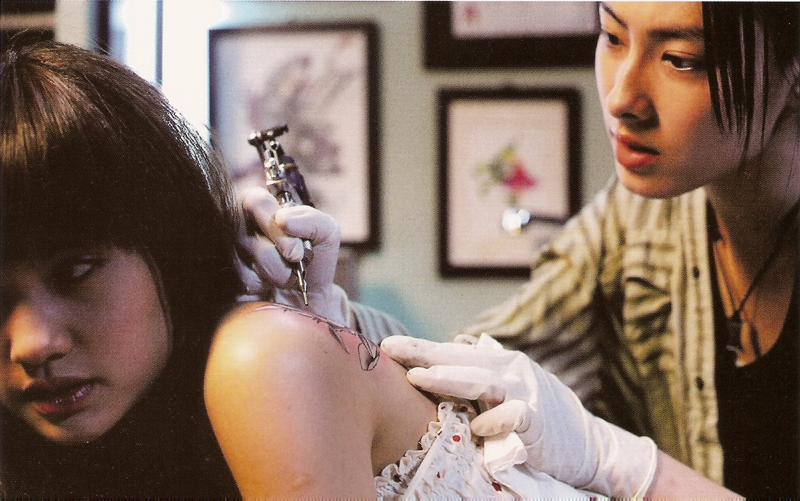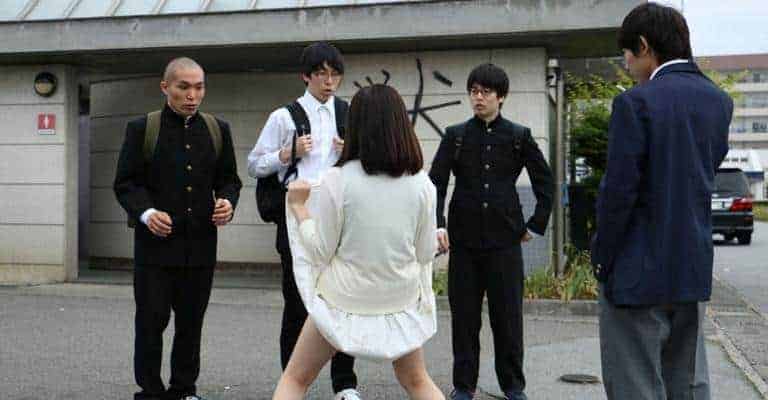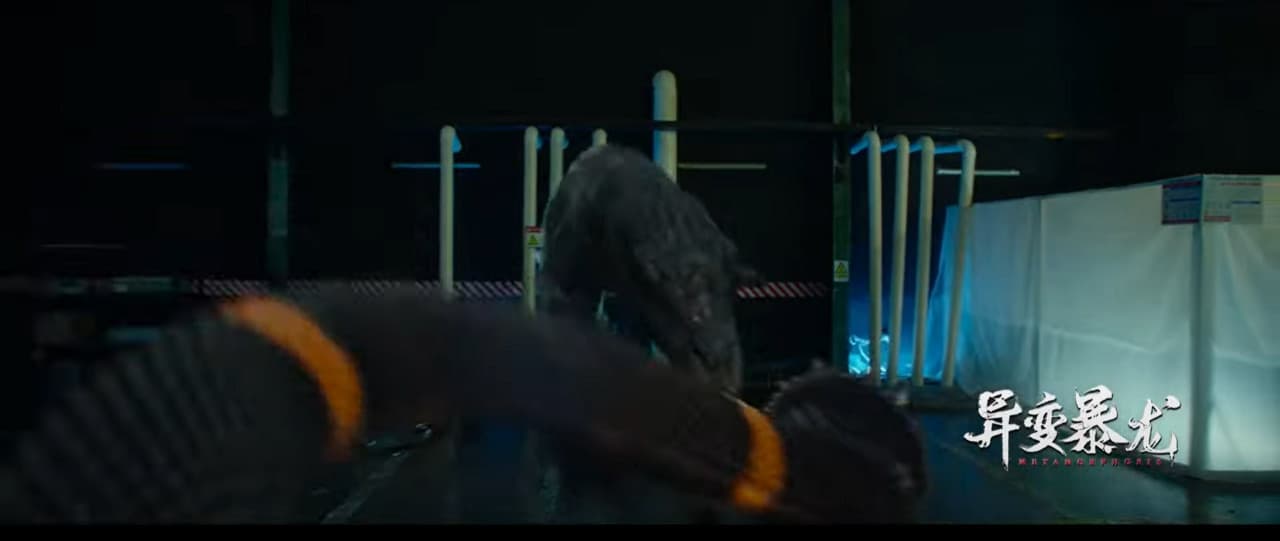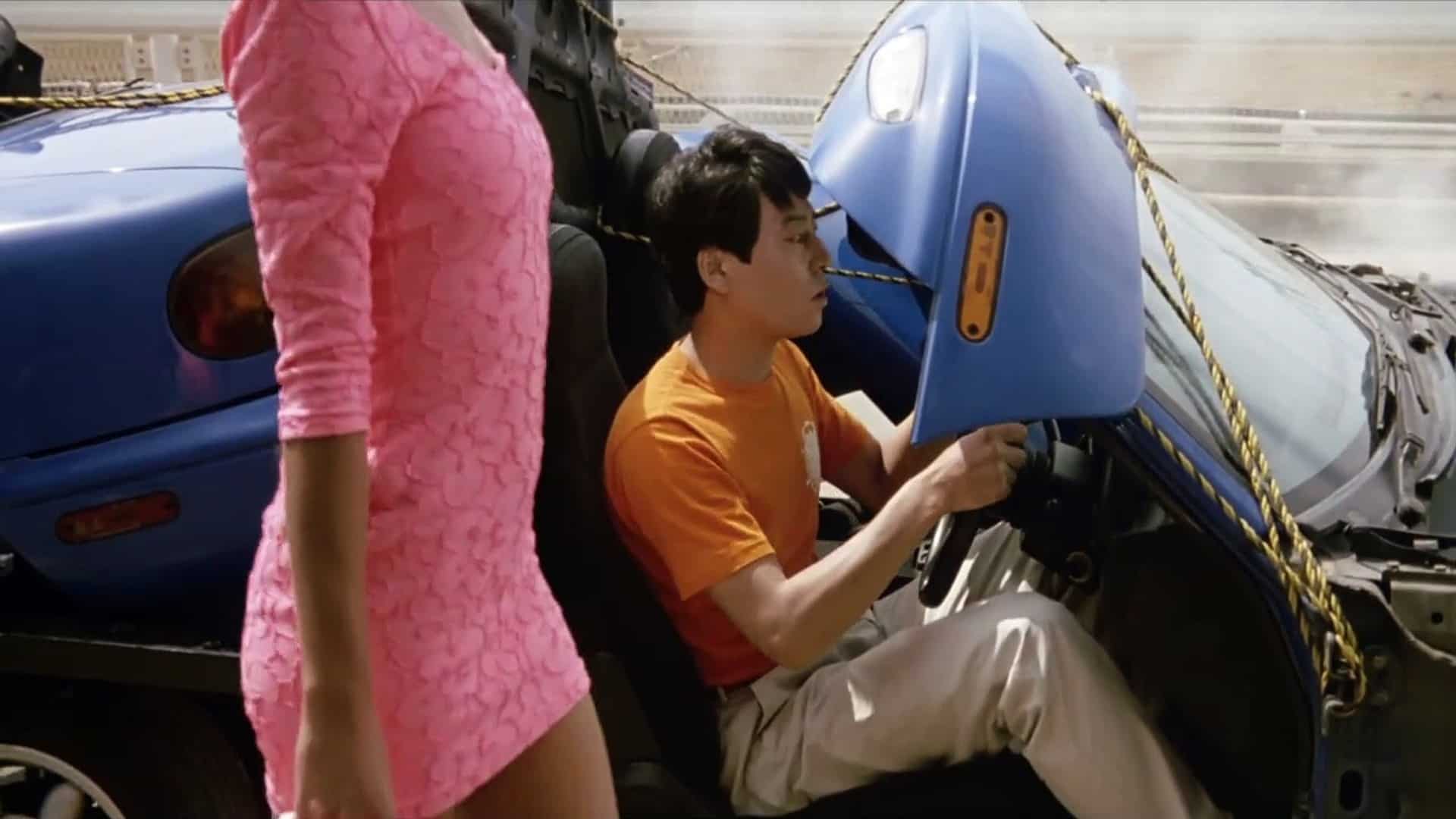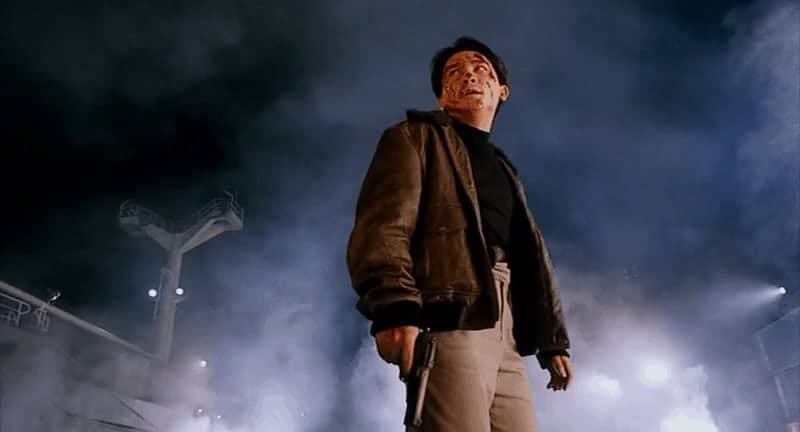„Spider Lilies”, the second feature by Taiwanese Zero Chou, upon its release in 2007 was an important and pioneering movie and gained a loyal audience, also outside the country in some conservative Asian societies. Moreover, the story tackling the new generation exploring its sexuality and identity through the internet was something fresh and new. Finding leads willing to star in a tale about female love was problematic, so the director was searching for actresses also outside Taiwan (and Hong Kong star Isabella Leong was cast). The director, a respected documentarian, and openly lesbian, whose debut feature focused on drag queens, became a significant representative of LGBT+ filmmakers, as her movies' protagonists are mostly queer.
“Spider Lillies” is screening at Five Flavours Asian Film Festival

Unfortunately, watched in 2021, “Spider Lilies” lost most of its advantages coming from its pioneering and bold charm. While the visual side and sensual color palette still impresses, the story disappoints on different levels, even as a simple teen melodrama. It takes too many overdramatic turns to be believable and tries to combine some storylines which are only roughly and vaguely sketched.
The movie focuses on Jade (pop star Rainie Yang), a schoolgirl in her late teens, living in a shabby apartment with her grandma. Jade escapes the harsh reality of cracked and damp walls, creating a dreamy sanctuary in her room with dim pinkish light and beaded curtains. However, her fantasy world is not only the getaway but also a source of income. Jade works as a webcam girl. In a fluorescent green wig, provocatively dressed, she tells sensual stories and offers private chats promising to disclose more to the highest bidders. Initially, there are comic notes, e.g. when grandma unexpectedly appears in the girl's room, entering the webcam frame. But soon it becomes clear that there is nothing hilarious in Jade's venture. Within her fantasies, she desperately tries to escape loneliness and find some self-assurance. One day she decides to get a tattoo to make her show more attractive (I'll disclose what I have on private chat, she promises). Unexpectedly, in a tattoo artist Takeko (Isabella Leong) she recognizes a former neighbor, a slightly older girl, on whom she had a crush as a kid. Takeko is another lonely soul, who confined herself to loneliness out of grief and guilt coming from a troubled past. Jade instantly reignites old flame.
The interesting part comes from the tattoo background. The characters refer a lot to tattoos and their meanings, making them a part of identity (the enigmatic title is also tattoo-connected). This identity is connected with memories, and in an intriguing parallel, Jade is a character who remembers everything, while Takeko forgets. Unfortunately, it doesn't find a satisfying resolution in the story. One of the biggest problems lies within the lack of chemistry between the two actresses and the script not offering them much to build on. It is hard to believe their relationship and find any grounds on which it can blossom. Jade seems too childish and bubbly. Her pompous and naïve confessions about her first love are more likely to be another girlish fantasy, not something real. Just another escape from her unappealing teen life. The whole Jade's character arc is underdeveloped, leaving off her bond with grandma and issues with her mother. Takeko seems more mature and grounded, but on a more rough path with her sexual and gender identity. In a series of flashbacks, we slowly discover family trauma, which shaped the fate of Takeko and her younger brother (suffering from amnesia), but it goes over the edge of drama, which doesn't necessarily translate into the psychological depth of the character.
In between, we will meet a punkish guy, who is Takeko's client. He doesn't add anything to the story (apart from his tattoos), as if he was borrowed from a different movie. The overcomplications of script involve also a sensitive stammering policeman from a group infiltrating webcam girls. The cop disturbingly falls for Jade, whom he is supposed to track. His questionable work ethics are never discussed.
The movie lies somewhere between arthouse indie and pop teen drama. It uses too much narrative tricks like a series of flashbacks slowly revealing past secrets and relies too much on symbolic metaphors, while disappointment comes mostly from characters lacking enough depth.


